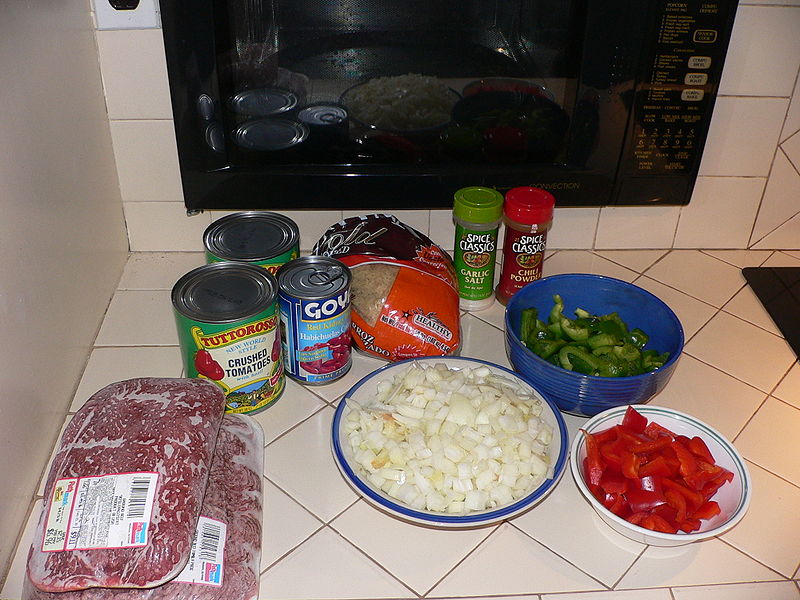
Source: Chili con carne 1, Mark Pellegrini, Wikimedia
The basic unit of English syntax is the simple sentence. A simple sentence has one independent clause with a subject and predicate, meaning it stands alone without being attached to anything. A simple sentence can be short, as in “This chili burns,” or long, as in the next example.
My chili recipe includes ground chuck and pork, garlic and onions, tomato sauce, cumin, paprika and oregano for spices, sugar for sweetening, cocoa for color, cornmeal and flour for thickening, and Louisiana hot sauce for zip.
Limiting yourself to short, simple sentences is a surefire way to avoid run-ons, but you also run the risk of sounding like you're still in elementary school or that you still watch SpongeBob SquarePants.
Read the story of “The Dog in the Mud” aloud and then answer some questions about its sentences.

Source: Eddie_Minnie_mud_wrestling_web,
CambridgeCanine.com, Flickr
The Dog in the Mud
This is the dog. The dog is in the mud. The dog can stomp in the mud. The mud is on the dog. The dog must get a bath. Sam can rub the mud off the dog. The dog is mad at Sam.
Did your reading sound choppy? Answering the questions below will help you figure out why.

1. A number of sentences in “The Dog in the Mud” begin with the same subject, creating redundant phrases. What is the subject?
2. This series of short, simple sentences creates the following effect:
3. A frequently used verb in this passage is—
In academic writing, you need to avoid using too many short, simple sentences in a row. Perhaps you can learn to write as if there were a shortage of periods. Short, simple sentences are concise and punchy, but they can also give the writing a choppy feel. An occasional short sentence delivers a strong punch, but it must be set off or juxtaposed with longer ones to make its brevity stand out. Look at this example:
It is to be remembered, and forgiven, that a reviewer, terribly bored by nineteen books out twenty, is deeply thankful to find the twentieth unboring, and hence he is apt to heap undue laudatory epithets upon it. Such is human nature. And while authors would never believe it, reviewers are human.
—Otto Bettman, The Delights of Reading
Positioned between two longer sentences, the short sentence “Such is human nature” carries the weight of this passage.